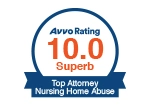







Everyone wants to be able to live in their own home for the rest of their lives. Unfortunately, because we all get older and may develop certain medical conditions or problems, this is not always possible. However, you can decide which the best place for someone you love depending on their specific needs, their personality and lifestyle, and finally how much money they place may be. If you have determined if a nursing home or assisted living facility is better but now think that the person you love may be in an environment that is abusive or that neglects their needs, then you need to speak to a nursing home neglect lawyer at the Higgins Firm. We will help you determine if you may be eligible for damages for the abuse or neglect that someone you love was made to suffer.
How are Nursing Homes and Assisted Living Facilities Similar? There are several ways in which nursing homes and assisted living facilities are similar. Both nursing homes and assisted living facilities provide personal care assistance, such as help with taking a shower, getting dressed, or help getting to the bathroom. Both of these facilities also provide supervision of their residents. Social activities, meals, housekeeping, security and emergency response systems and transportation are also provided by both nursing homes and assisted living residences. Finally, some type of medical care is provided at each of these facilities.
What are the Differences Between Nursing Homes and Assisted Living Facilities? While both nursing homes and assisted living provide services and care to their residents the type of care provided is one of the big differences. Nursing homes constantly supervise the people that live there and assess their medical needs, assist with daily needs, and during their meals and social activities. People that live in a nursing home are seen more like patients in a hospital and are not able to leave the home on their own. This is because nursing homes are mainly for people that have serious medical problems or disabilities. Nursing homes also provide skilled nursing care to residents requiring the need for twenty-four hour care or that may need specialized medical equipment.
Nursing homes may also provide physical therapy for their patients that is under the supervision of a licensed doctor and given to the patient by a nurse. Nursing home patients may also receive care for cleaning of any wounds, get help when eating and may be given medicine at certain times to make sure it gets taken. Many nursing homes have their own pharmacy for a patient’s medication needs.
Assisted living facilities take the approach with residents that they are mostly independent and can care for themselves but may need minor assistance with dressing, bathing, and going to the restroom. The staff is also around if a resident have an emergency and require more attention. These facilities often have apartments, small homes, or large rooms for the people that live there. It is a more home-like setting. They may even come with a small refrigerator or microwave in the kitchen area. They may provide transportation to exercise classes, events, and other social activities. Even though they have plans in place for emergency situations they do not offer the same level of medical and nursing care services that nursing homes do.
It may be very difficult for someone you love to give up the home they have lived in for many years and transition to a nursing home or assisted living facility. However, knowing the similarities and differences of each may help make the decision a little easier. If after you have chosen one of these facilities you suspect that abuse or neglect is taking place when you visit someone you love, it is highly encouraged that you contact one of our experienced nursing home abuse and neglect attorneys with the Higgins Firm. We care about our clients and will work hard to see to it that you are fairly compensated for what you have experienced. We will also make sure that the party responsible for the abuse or neglect is held responsible for their actions.
You can contact us online or by phone at 800.705.2121 to address any concerns you may have about your claim.
The insurance company has a legal team. You should too.
